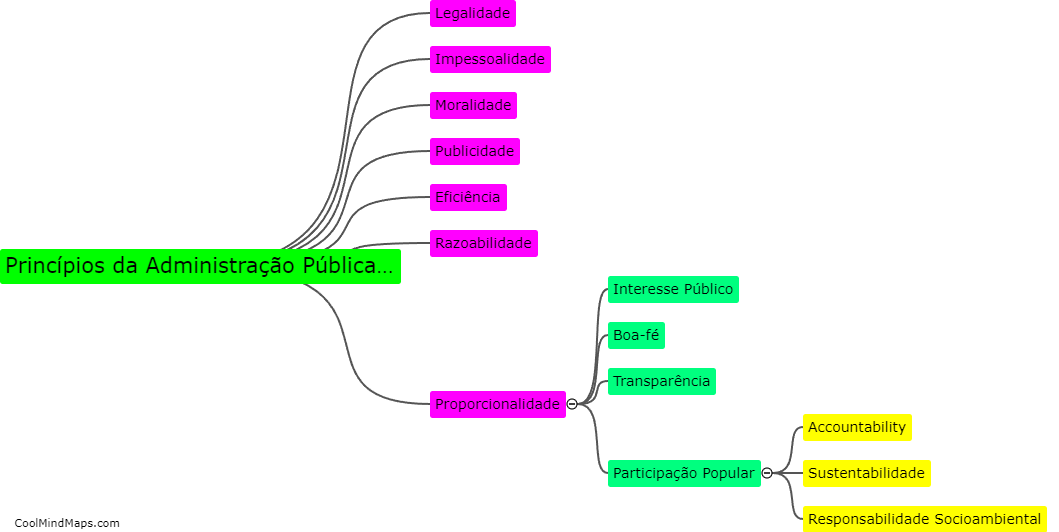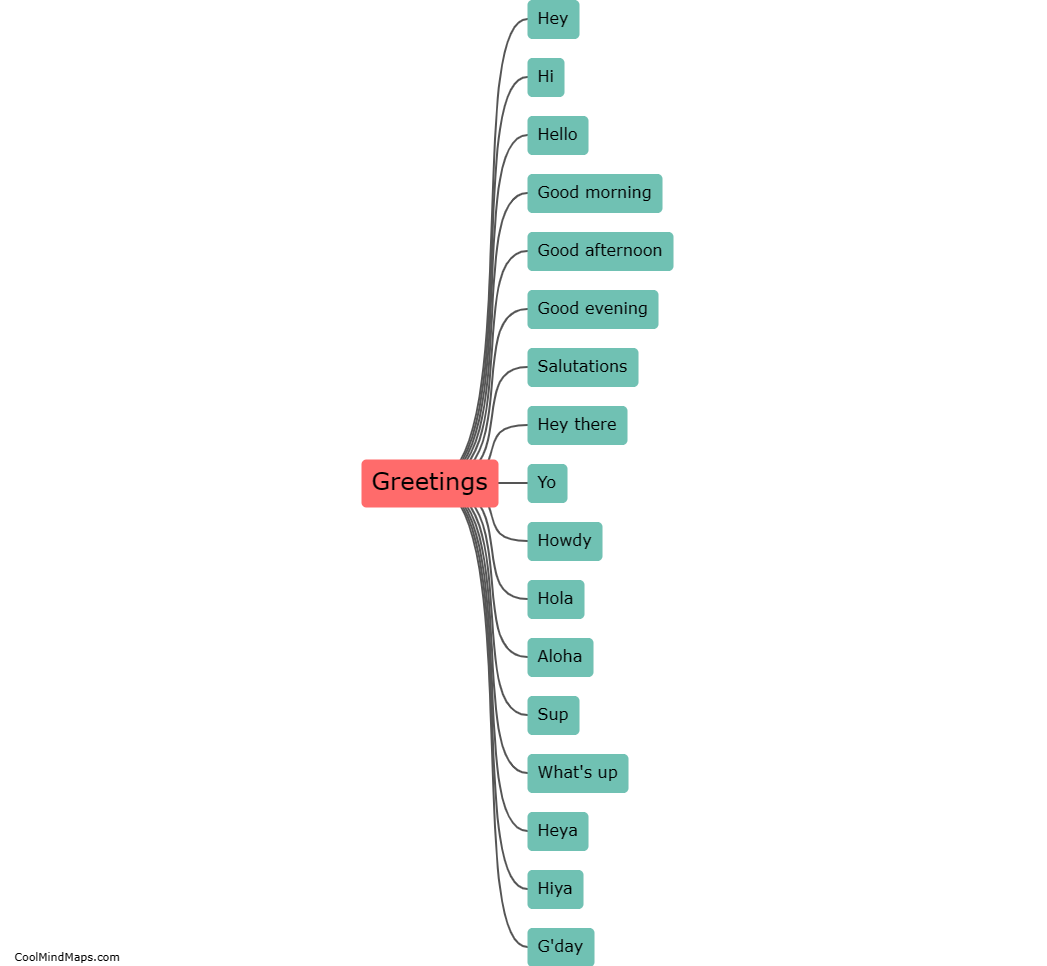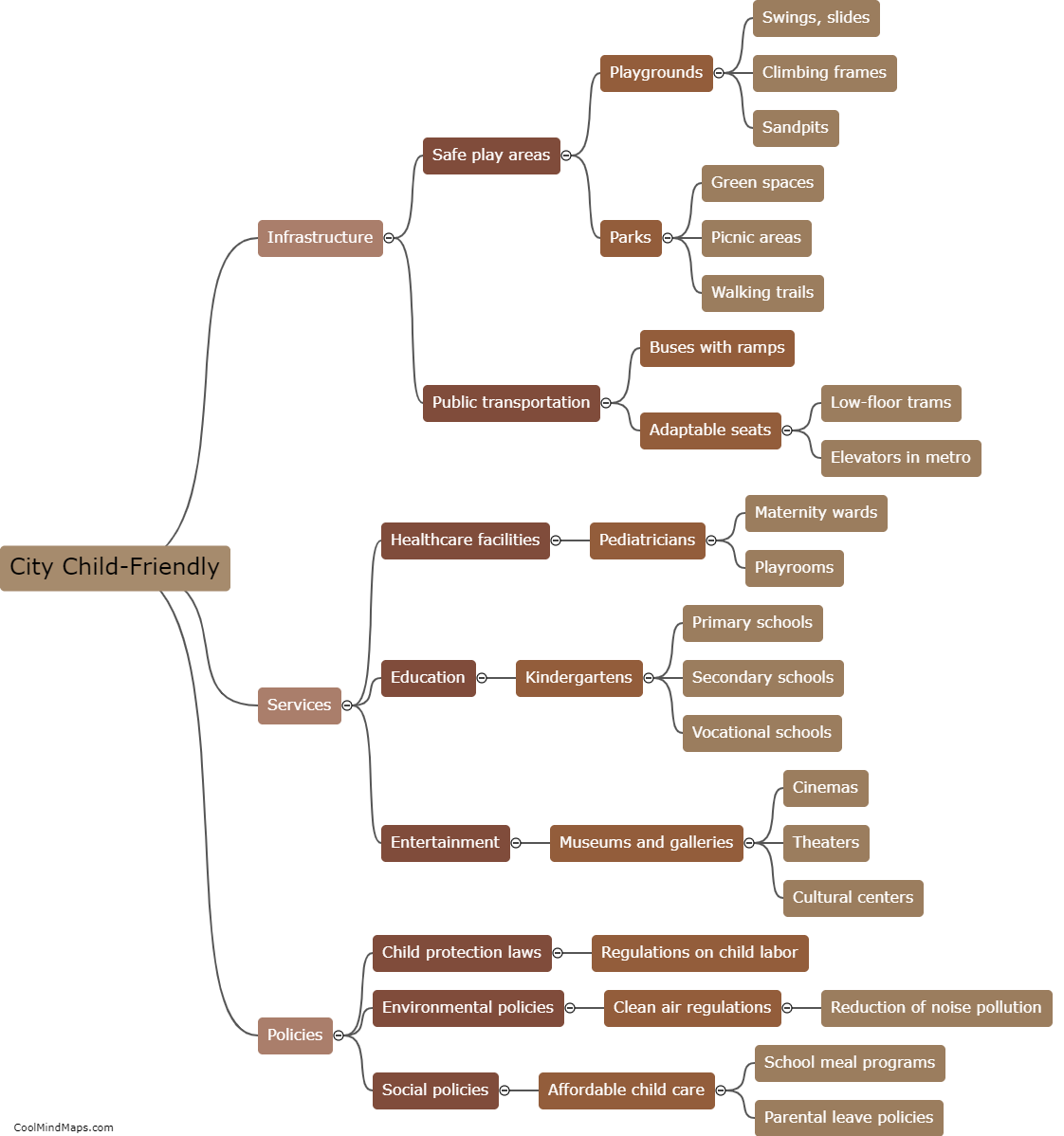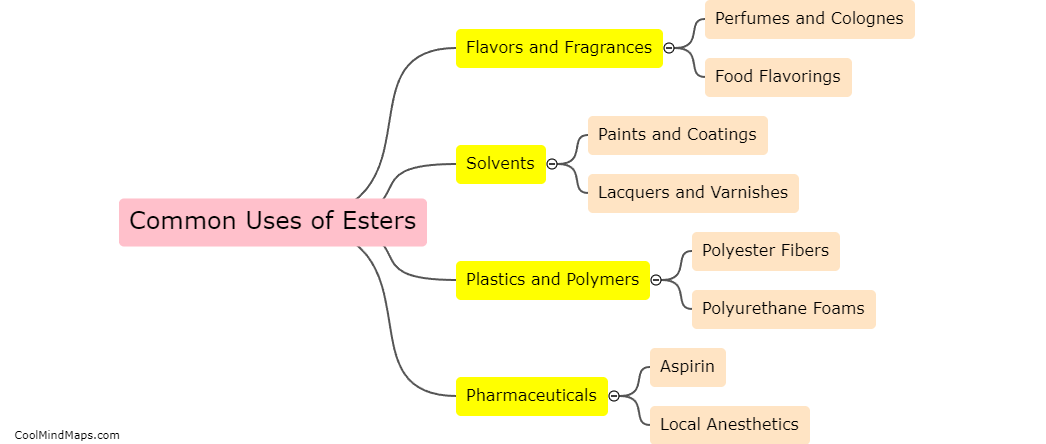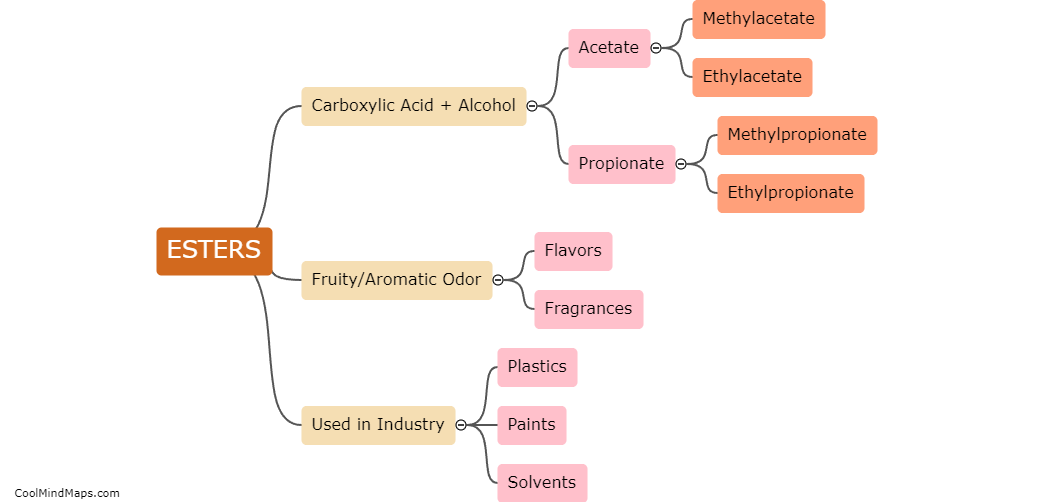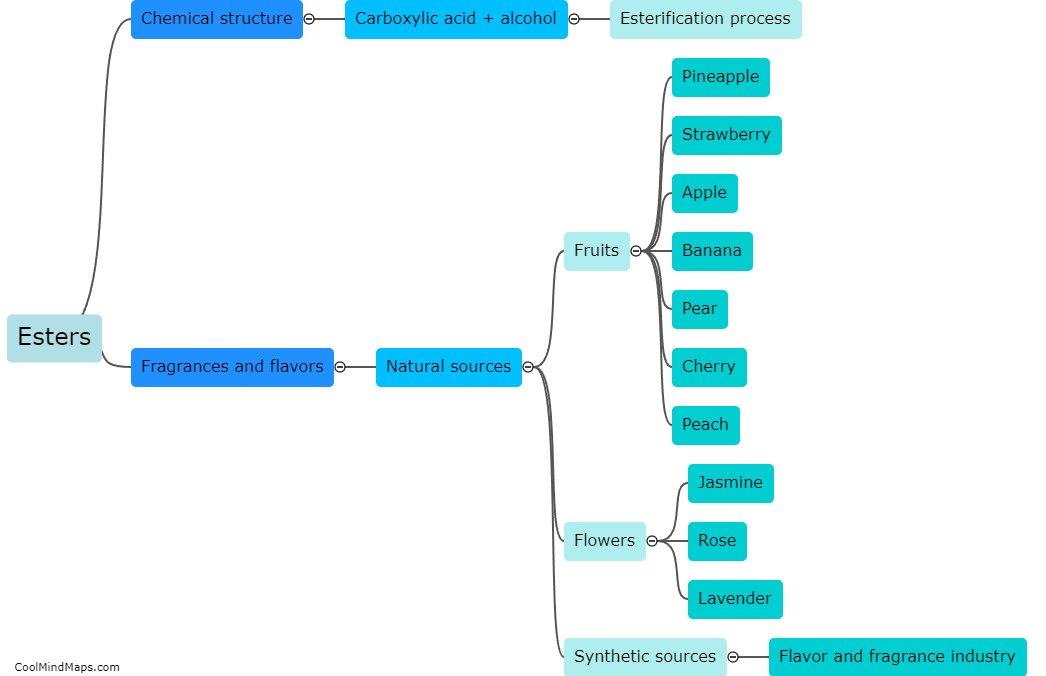What are polymers?
Polymers are large molecules made up of repeating units called monomers. They can be natural or synthetic and have various properties that make them useful in a wide range of applications. Some examples of natural polymers include proteins, cellulose, and rubber, while synthetic polymers include plastics, synthetic fibers, and adhesives. Polymers can be formed through processes such as polymerization, which involves joining monomers together, or condensation, which involves removing molecules of water during polymerization. The properties of polymers can be modified through the addition of different chemical groups or changing the monomer composition, resulting in a wide range of polymers with unique properties.
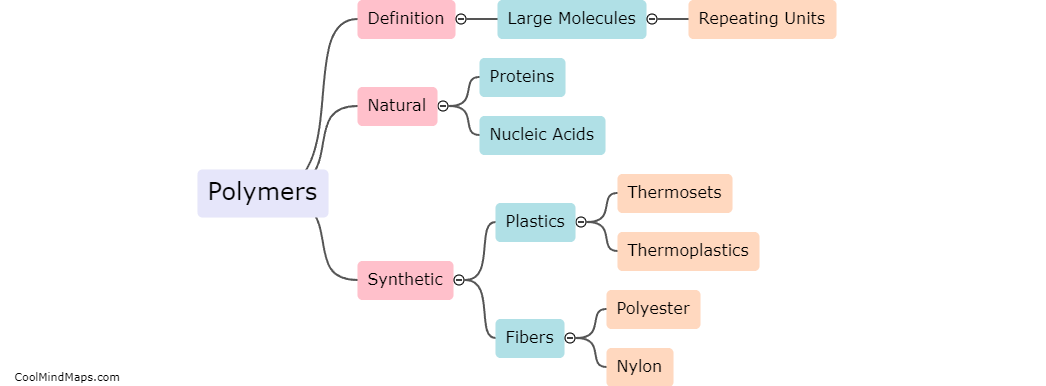
This mind map was published on 20 May 2023 and has been viewed 169 times.
